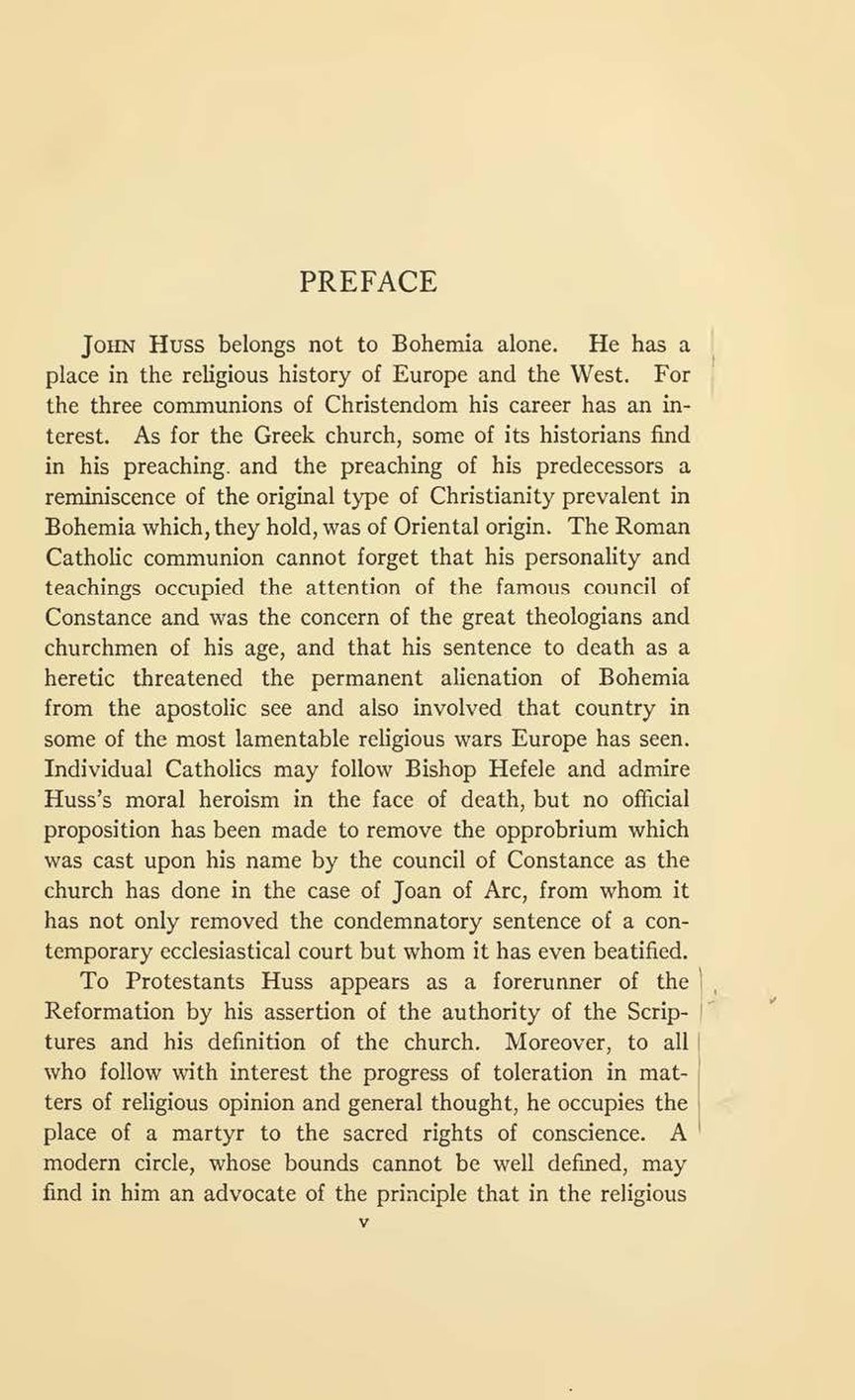PREFACE
John Huss belongs not to Bohemia alone. He has a place in the religious history of Europe and the West. For the three communions of Christendom his career has an interest. As for the Greek church, some of its historians find in his preaching. and the preaching of his predecessors a reminiscence of the original type of Christianity prevalent in Bohemia which, they hold, was of Oriental origin. The Roman Catholic communion cannot forget that his personality and teachings occupied the attention of the famous council of Constance and was the concern of the great theologians and churchmen of his age, and that his sentence to death as a heretic threatened the permanent alienation of Bohemia from the apostolic see and also involved that country in some of the most lamentable religious wars Europe has seen. Individual Catholics may follow Bishop Hefele and admire Huss’s moral heroism in the face of death, but no official proposition has been made to remove the opprobrium which was cast upon his name by the council of Constance as the church has done in the case of Joan of Arc, from whom it has not only removed the condemnatory sentence of a contemporary ecclesiastical court but whom it has even beatified.
To Protestants Huss appears as a forerunner of the Reformation by his assertion of the authority of the Scriptures and his definition of the church. Moreover, to all who follow with interest the progress of toleration in matters of religious opinion and general thought, he occupies the place of a martyr to the sacred rights of conscience. A modern circle, whose bounds cannot be well defined, may find in him an advocate of the principle that in the religious
v
